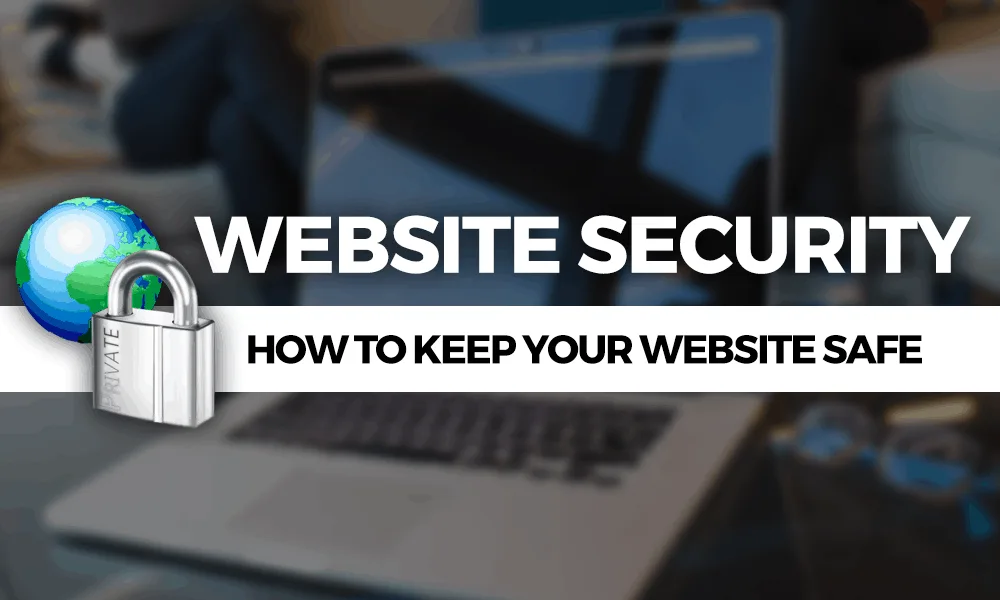The easiest way to protect your website from hackers is to install an effective web security plugin. It is perfectly fine if you just don t have the time to invest into website security, but if you are willing to invest the time and resources, then advise you to read through and implement these simple steps on how to secure your website. A quick glance at this list of tips will guide you on what to do.
Server Security
The first step in securing your website security is to identify the vulnerability of your server. You can do this by checking if there are any open security holes in the operating system of your web host.
6If you find any, then address the issue immediately so that you can minimise the chances of your system being compromised by hackers. If you discover a vulnerable web host, contact your web host immediately to address the problem.
Security Scans
The second step is performing website security scans. There are free and paid security scanners available on the internet. I suggest that you choose one that is compatible with your operating system. Scan the system for any security vulnerabilities and keep them updated with any new discoveries made by the hackers.
Firewalls
The third step is installing a firewall. Your firewall will protect your system from malicious scripts and programs running on the internet. Most importantly, a good firewall will deny access to websites that are known to be malicious or infected.
Address Issues
The fourth step to taking advantage of the vulnerabilities on your website security is to address the issues related to the vulnerabilities. This means that you need to identify the vulnerability on your server and resolve it.
However, if the vulnerability is not resolved then you can mitigate its effects. Common issues that could affect your system include denial of access, application downtime, user load delays, and application hijacking.
Security Plugins
The fifth step is to install a good security plugin. A good security plugin will allow you to track the activity of visitors to your site. It will also prevent hackers from monitoring your database. It will record all the information about the users who have accessed your website and will provide you the reports once a day or depending upon the plugin’s configuration.
Backup Plugins
One of the easiest among them is to install backup plugins for WordPress. These backup plugins work by restoring any part of your website to its previous state in the event of any website hack.
This includes everything from database records to images and video files, and everything that you have worked hard to protect. Thus, ensuring that you are protecting your valuable data is as simple as having backup plugins for WordPress installed on your websites.
Precations
The sixth and final step is taking extra measures to prevent hackers from getting access to your website security and personal data. Some of these precautions include storing your data in offline files.
You can also create different passwords for different areas of your website. Another good security plugin will prevent users from logging into your site using their common password.
Changing Passwords Regularly
In the first place, if you do not change passwords regularly, you may be hacked even if no one uses your site. In the second place, changing passwords too often makes it hard for you to remember them, which means hackers can easily break in by using combinations of known and random passwords.
Never use short passwords and make sure you use complex passwords that are hard to imitate or steal from you.
Once a hacker has broken into your website security, his goals will be very simple – he will try to find out as much information as possible and he will use that information to break into your bank accounts and transfer money.
To make sure this will not happen, set up an effective system to prevent hackers from getting access to your database.
Web Hosting
Apart from website security, another crucial issue that should be taken seriously is web hosting. Even though many people claim that they will host their websites themselves, only a small fraction actually do so.
Often, people who do not know much about website security may think that they are taking good care of their business, when in fact they are making it easy for hackers to get into.
Hackers are able to easily crack open database files, remove important files, delete the files they want and take vital information from your database.
If you are choosing a web hosting company make sure you check the security of the server and do a full scan of your server to make sure there are no serious issues that can affect your database and files.
SSL Certificates
Apart from web hosting, another critical factor that should be taken seriously is the SSL certificate that you are using.
Using an SSL certificate will allow you to ensure that all of your websites are protected against hackers.
However, you need to remember that even if you have an SSL certificate, your SSL certificate does not guarantee that your websites are 100% safe as there are a number of other issues that may lead to your website security being compromised, including; having poor passwords, using weak webhosting platforms and not updating your websites regularly.
Use Software
Many people try to solve their problems by manually investigating the problem, but this is actually the worst thing you can do.
Manual testing is very time consuming and unless you have a thorough knowledge of website security vulnerabilities, manually investigating is not worth the time.
Instead of wasting your time manually testing, what you can do is to use a professional software program that is designed to scan the system for possible vulnerabilities and problems and let you know if anything wrong is going on.
These programs are designed specifically to find web vulnerabilities and help you fix the problems that you might be facing.
Summary
Website Security offers a simple, comprehensive and full-featured tool to keep your website secure from hackers, malware and various other internet security threats.
After all, your website is the heart of your company, your brand and everything you are bringing into the virtual world. So, it is essential that you take necessary steps to ensure that your website is not only secure but safe from all kinds of malicious threats and hackers.
To ensure that you don’t lose everything that you have worked so hard to get, make sure you implement the different website security measures mentioned in this guide.







